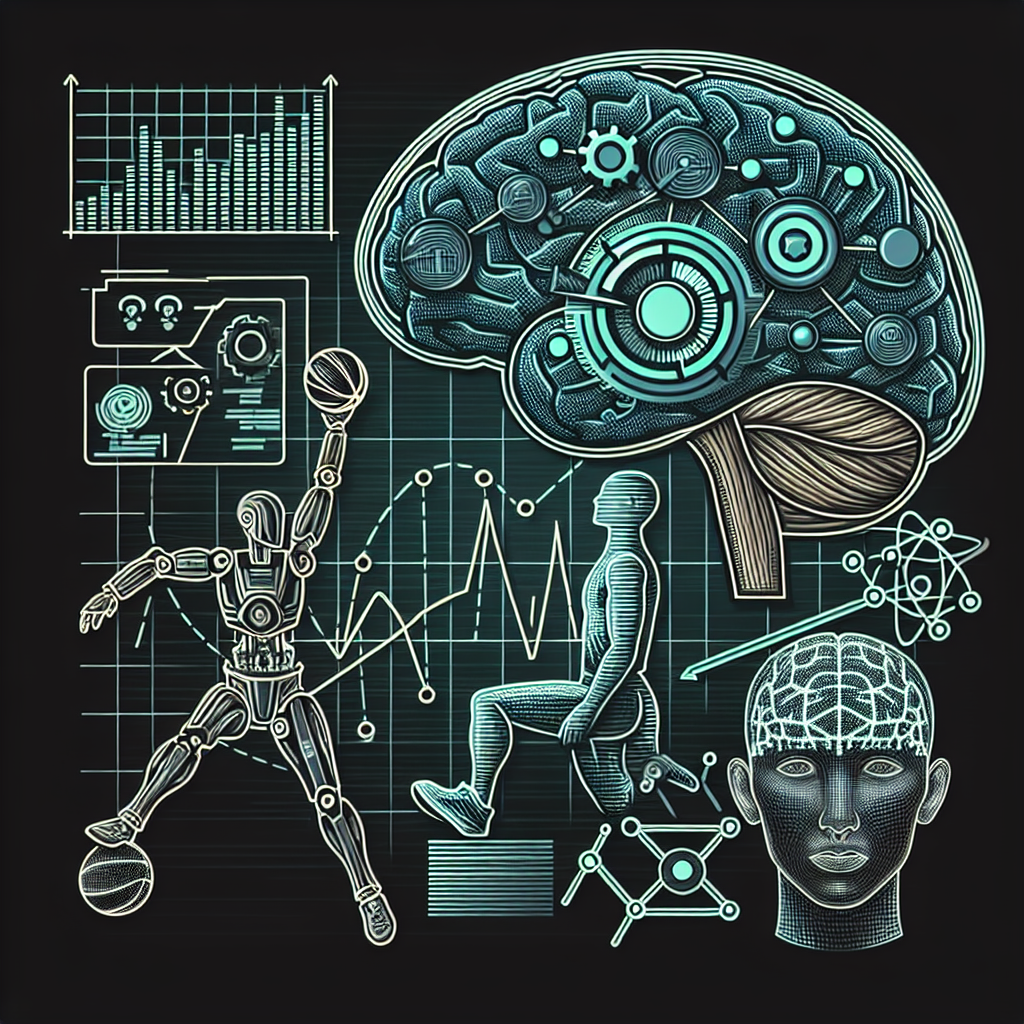Artificial Intelligence (AI) has revolutionized numerous industries, and sports performance is no exception. AI is being used to analyze player performance, predict outcomes, enhance training programs, and even improve coaching techniques. But what is the psychology behind AI and sports performance, and how does it impact athletes and coaches? In this article, we will explore the intersection of AI and sports psychology, and how it is shaping the future of sports performance.
The Role of AI in Sports Performance
AI is being used in a variety of ways to enhance sports performance. One of the most common applications of AI in sports is in player performance analysis. AI algorithms can analyze vast amounts of data, such as player statistics, game footage, and even biometric data, to identify patterns and trends that may not be visible to the naked eye. This information can be used to optimize training programs, develop personalized strategies, and improve overall performance.
In addition to player performance analysis, AI is also being used to predict game outcomes. By analyzing historical data and using predictive modeling techniques, AI can accurately predict the likelihood of a team winning a game, or an individual player performing well. This information can be used by coaches and players to develop strategies and make informed decisions during games.
AI is also being used to enhance training programs. By analyzing data from training sessions, AI algorithms can identify areas of improvement and recommend personalized training plans for individual athletes. This can help athletes maximize their potential and reach peak performance levels.
The Psychology of Sports Performance
The psychology of sports performance plays a crucial role in an athlete’s success. Mental factors such as motivation, confidence, focus, and resilience can all impact an athlete’s performance on the field. Sports psychologists work with athletes to help them develop mental skills and strategies to enhance their performance and achieve their goals.
AI can also play a role in the psychology of sports performance. By analyzing data on an athlete’s mental state, such as heart rate variability, sleep patterns, and stress levels, AI algorithms can provide insights into an athlete’s mental well-being and help coaches and sports psychologists develop personalized strategies to support the athlete.
The use of AI in sports performance can also have psychological implications for athletes. For example, receiving feedback from an AI algorithm on their performance may impact an athlete’s confidence and motivation. Athletes may also feel pressure to perform well in order to meet the expectations set by AI predictions. It is important for coaches and sports psychologists to work with athletes to help them navigate these psychological challenges and use AI as a tool to enhance their performance, rather than a source of stress or anxiety.
FAQs
Q: How can AI help athletes improve their performance?
A: AI can help athletes improve their performance by analyzing data on their performance, predicting outcomes, and enhancing training programs. By providing personalized insights and recommendations, AI can help athletes maximize their potential and reach peak performance levels.
Q: What are some potential psychological implications of using AI in sports performance?
A: Using AI in sports performance can have psychological implications for athletes, such as impacting their confidence, motivation, and stress levels. It is important for coaches and sports psychologists to work with athletes to help them navigate these challenges and use AI as a tool to enhance their performance.
Q: How can sports psychologists work with AI to support athletes?
A: Sports psychologists can work with AI to support athletes by analyzing data on an athlete’s mental state, such as heart rate variability, sleep patterns, and stress levels. This information can help coaches and sports psychologists develop personalized strategies to support the athlete’s mental well-being and enhance their performance.
In conclusion, AI is transforming the world of sports performance by providing athletes and coaches with valuable insights and recommendations to optimize performance. By understanding the psychology behind AI and sports performance, athletes and coaches can harness the power of AI to enhance their performance and achieve their goals. It is important for athletes and coaches to work with sports psychologists to navigate the psychological challenges that may arise from using AI in sports performance, and use it as a tool to support their mental well-being and performance.

